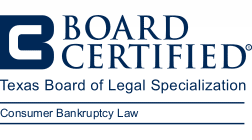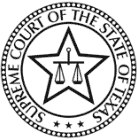Answers for 3 frequently-asked Chapter 13 bankruptcy questions
There are a lot of misconceptions about bankruptcy in general. Chapter 13 Bankruptcy, which is a more complex and involved process than Chapter 7 bankruptcy, confuses many people.
Some people assume that if they don’t qualify for a Chapter 7 bankruptcy based on the means test, then it isn’t worth pursuing a Chapter 13 filing. However, Chapter 13 bankruptcy has helped countless Americans regain control over their finances and address insurmountable levels of personal debt.
If you have ever wondered about the answers to any of the three questions below, learning the answers might change your perspective on Chapter 13 bankruptcy.
Will I lose any of my property in a Chapter 13 filing?
The liquidation of personal assets is not typically a requirement in a Chapter 13 filing. Rather than needing to cash out the equity in your home or sell off your valuable possessions to repay creditors, you have to create a repayment plan. Chapter 13 bankruptcy is a great solution for people with a lot of debt but also a lot of property that would be at risk in a Chapter 7 filing.
How does the repayment plan work?
When you first file for bankruptcy, you will provide the courts with financial information, including information about your creditors. The court assigned a trustee to oversee your bankruptcy, and that trustee will arrange a creditor meeting.
At that meeting, representatives of the creditors of the trustee will ask questions of the person filing and negotiate a repayment plan that involves monthly payments to all of their unsecured creditors. This plan will usually require that someone use almost all of their disposable income for payments.
The person filing will make payments to the trustee, who distributes the funds to the creditors, for at least three years, sometimes longer. At the end of those payments, the courts will discharge the remaining balances on those unsecured accounts.
How long will Chapter 13 bankruptcy affect your credit?
Given that it takes longer to secure a discharge and that the person filing has made a concerted effort to repay their debts in a Chapter 13 filing, their discharge will stay on their credit report for less time than it would if they filed a Chapter 7 bankruptcy. The record of your bankruptcy will come off of your credit report after seven years, just like with any other debt or blemish.
Filing for Chapter 13 bankruptcy can be a viable solution for individuals with higher-than-average income or significant personal property.












